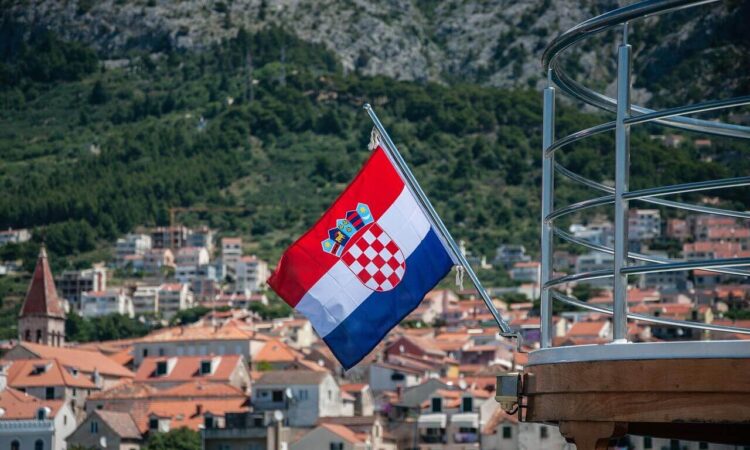
Starting from this Sunday, January 1, 2023, Croatia will officially become a Schengen Area Member Country and will also adopt the euro as its currency after years of intensive preparations and work.
In honour of Croatia meeting these two milestones, the European Union Commission has released a statement congratulating the country and highlighting the importance of this date for both Croatia and Europe, SchengenVisaInfo.com reports.
“On January 1, 2023, Croatia will adopt the euro as its currency and will fully join the Schengen area. This marks an important milestone in the history of Croatia, of the euro and Schengen area, and of the EU as a whole,” the statement reads.
It further points out that with Croatia joining the Schengen Area, now the zone consists of 27 Member States, 23 of which are also EU countries. The Eurozone, in the meantime, now consists of 19 EU Member States and 347 million EU citizens that will share it as their common currency.
Commenting on Croatia’s Schengen accession and the adoption of the euro, the President of the EU Commission, Ursula von der Leyen, expressed her warm welcome for the citizens of Croatia in the borderless zone, pointing out that border controls between Croatia and the rest of the Schengen Area will now become part of the past.
“From this Sunday, citizens driving to and from Croatia can start travelling without internal border controls. The Schengen enlargement makes us stronger, and Croatia can now fully contribute to a more prosperous and resilient Schengen area,” she said.
She also highlighted the importance of Croatians joining the 347 million Europeans using the euro as their currency, calling it a symbolic moment for the euro area as a whole.
Croatia’s Schengen accession has been welcomed by the Vice-President, Margaritis Schinas, who named it “a milestone in Croatia’s European path and a fully deserved one,” and the Commissioner for Economy Paolo Gentiloni, who called Croatia’s progress “an incredible journey over the past three decades.”
Whereas the Commissioner for Home Affairs, Ylva Johansson, was the only one who mentioned Romania and Bulgaria in the hopes that they would soon become part of the Schengen Area too.
“I am proud of the work the Commission and Croatia have done together so that Croatians can benefit from this historic step forward. In that respect, I remain personally committed to both Romania and Bulgaria becoming members in the near future,” she said.
From Kuna to Euro: How Will It Work
The EU had adopted the three final acts that enabled Croatia to become part of the Eurozone on July 12, 2022, and Croatia has been preparing to become part of the area since then.
As a result, on Sunday, January 1, 70 per cent of the ATMs in Croatia will start distributing euro banknotes, while the remaining 30 per cent will be able to do so in the following two weeks.
The replacement of the kuna with the euro with happen gradually, as both currencies will be acceptable for use in the first two weeks of January.
Shops, restaurants, and all other types of services that work with cash, when receiving kuna, will be obliged to give euros for change, in order for the progressive withdrawal of the kuna from circulation to become possible. The same have already been supplied with euro cash by the Croatian National Bank.
“In line with a consistent record of exchange-rate stability, the kuna will be exchanged at a conversion rate of 1 euro for 7.53450 Croatian kuna,” the EU Commission has revealed.
Croatian citizens can exchange their kuna banknotes and coins for euro banknotes and coins at the Financial Agency and post offices until June 30, 2023, completely free of charge.
The exchange of banknotes and coins at commercial banks will be possible until December 31, 2023. However, for exchanges higher than 100 kuna banknotes and 100 kuna coins, some banks will be imposing fees. After July 1, 2023, a fee will be charged for all exchanges.
>> Eurozone to Expect Higher Prices as Annual Inflation Reaches 9.1%
Joining the Schengen Area & Removing Border Controls
Croatia started applying parts of the Schengen acquis in 2013, when it became an EU member, including parts of it that are related to police cooperation, external borders control, and the use of the Schengen Information System.
The parts of the Schengen acquis that Croatia still does not apply will become applicable as of January 1, 2023. Here is included the abolishing of the internal land and sea borders between Croatia and the other Schengen Zone countries.
Regarding internal air borders, they will be lifted on March 26 next year, in order to align the date with the summer/winter time schedule of the International Air Transport Association (IATA).
“In line with the Schengen Evaluation and Monitoring Regulation, Croatia will be evaluated within one year from the date of the full application of the Schengen acquis,” the EU Commission points out, adding that the regulation has recently undergone reforms in order to strengthen the evaluation of respect of human rights.
Croatia has often been accused of violation of human rights by organisations like Amnesty International, more specifically, for violating the rights of refugees and asylum seekers reaching its shores and borders.
Only this month, Amnesty International has accused the EU of admitting Croatia to the Schengen Area without consideration for the abuses taking place at its borders.
In August 2022, on the other hand, Human Rights Watch (HRW) had requested the EU not to accept Croatia as a member of the Schengen Zone over “Croatia’s unlawful and violent treatment of migrants.”



